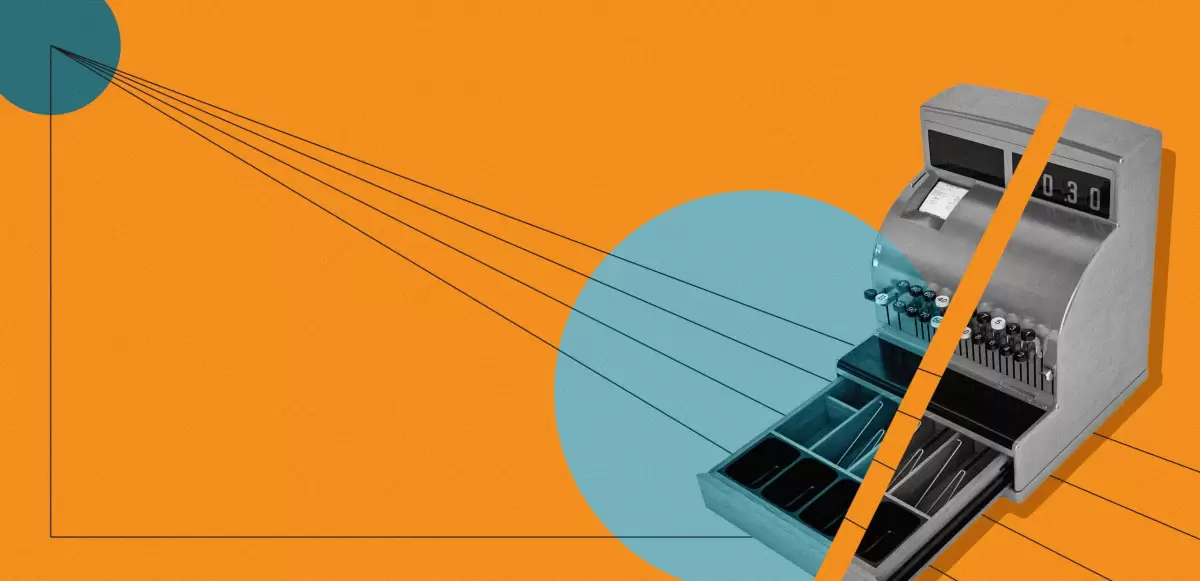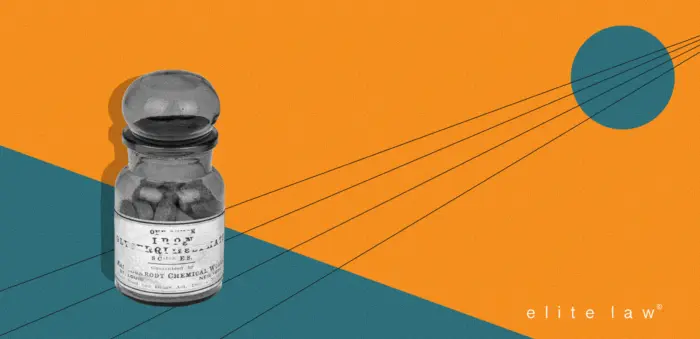Fans of the world’s football teams, especially in the last decade, have learned a new and profound kind of sports disappointment. It’s not about seeing your team lose badly in a derby, or being defeated in a cup final. It’s not even about despairing at being relegated to a lower division. It is a disappointment that goes to the root of the fan base and that is linked to events that have nothing to do with the field and the sporting results.
Bankruptcy is like dying
It is an event that risks, with one stroke of the sponge, erasing histories that are, at times, hundreds of years old, taking away brands, titles, traditions, important reservoirs of fans and passion: it is the bankruptcy of the club (or rather, of the company that owns and/or manages it).
Typically, this happens for the same reasons that can lead to the bankruptcy of a company operating in other fields: the inability to pay its debts.
In recent years, the economic situation of football, both in Europe and worldwide, which was already not starting from particularly solid foundations, has worsened further.
According to the report “The European Champions Report 2021” by Kpmg Football Benchmark, based on a sample of 20 clubs from nine European leagues, in 2021 operating revenues (excluding capital gains in the football market) fell from 7.303 billion to 6.289 billion euros: one billion 15 million less (-13.9%). Further damage in recent years has come from the reduction in income from sponsors and match day operations (spectators and related induced activity) due to the pandemic.
From Paradise to Hell
Let’s take an emblematic event that struck Parma, one of the football teams in the top Italian league, which in the 1990’s was capable of winning an Italian Cup (’91-’92), a Cup Winners’ Cup (’92-’93), a European Super Cup (’93-’94) and a UEFA Cup in 1999, in addition to having come close to winning the Scudetto with a second place finish in ’96-’97 season. A team that made not only its fans’ eyes shine. A whirlwind of champions, from Zola to Chiesa, from Cannavaro to Thuram, from Faustino Asprilla to Buffon, who put on a show at the Tardini stadium. A club that seemed to be a model: from a small town in the Emilia region to the peaks of the European and thus world football.
Instead, fast-forward 15 years to 2015, and the club turns out to be bankrupt and then reborn with a new name (Società Sportiva Dilettantistica Parma Calcio 1913, then Parma Calcio 1913) and enrolled in Serie D, the fourth semi-professional tier of Italian football. From Europe to amateurs in the space of a few lustrums, a dramatic collapse that began with the revocation of the UEFA license to participate in the Europa League in the ‘15-‘16 season.
The Parma case – taken as an example to introduce an interesting award issued by the CAS that we will cite in the following chapter – is just one of the many examples of top-level football clubs declared bankrupt, or that in any case have had to resort to bankruptcy law tools to survive, in the last 25 years. How can we forget Napoli, again in Italy, Glasgow Rangers in Scotland, Marseille and Bastia in France, Mallorca, Granada and Elche in Spain, Borussia Dortmund in Germany, Lugano, Lausanne and Neuchatel Xamax in Switzerland and then expand to Independiente, Racing Avellaneda and San Lorenzo in Argentina, Colo Colo in Chile up to various Chinese clubs including the 2020 champion Jangsu in the last two seasons.
English clubs are no better off. If the top clubs of the Premier League have been dominating in Europe for many years now, the situation in the minor leagues is quite different.
This is testified by the story of Bury FC, team with 134 years of history behind it, expelled in 2019 from League One, and put into administration, which even had to sell its stadium to be reborn. This without forgetting other noble lapses; Leeds, placed in administration, penalized and relegated from the Championship to League One in 2007, and Portsmouth, which was the first Premier League club to go into administration in 2010, up to Derby County in the current season.
The Consequences of a Bankruptcy
Notwithstanding the differences between the various cases mentioned above, the bankruptcies of clubs trigger a chain of complex consequences, difficult to unravel, that affect the legal, economic, sporting and also – sensu lato – the social level, as the bankrupted clubs are often very rooted in the popular fabric and bearers of long-standing traditions.
We wrote at the beginning of this article about the suffering that such a traumatic event can bring to fans.
In addition to fans, there is another category of subjects that surely suffer negative consequences: the creditors of the sports club declared bankrupt. These include, first and foremost, workers under contract such as managers, employees and players, as well as, obviously, state authorities, external suppliers, consultants and agents.
Without going into technicalities, and before dwelling on how, at the international level, FIFA and CAS have dealt with this issue in recent years, it must be said that – rightly – national federations have historically tended to safeguard the so-called “sporting title”, i.e., the set of technical and sporting conditions, colors, names, logos that, on the one hand, allow participation in a specific championship and, on the other, represent the essence of the club that has disappeared or is in difficulty.
The “Sporting Succession”
The cases of sporting deaths, real or presumed, and sudden revivals generate complex questions.
For instance, can the creditor of the bankrupt club have a claim against the new club, which was formed to safeguard the “sporting title” and which, in the course of a few years, may find itself at an equal or higher level than the original club? And can the new club, with a different ownership and corporate structure from the one of the bankrupted club, always be protected from the creditors of the old club that has disappeared?
In order to answer these questions, a legal concept was first developed by the jurisprudence and then enshrined by FIFA’s texts, namely the notion of “sporting successor” or “sporting succession”, which is distinct from the known principle of “legal succession”.
In this respect, one of the first decisions handed down was the one issued by the FIFA DRC on 15 January 2004 (n. 14-220402) where a player was granted outstanding salaries to be paid by the new club, successor of the original debtor club, which restarted from the same division. This solution was taken up in 2007 by the leading case “CAS 2007/A/1355” dealing with the Rumanian sideFC Politehnica Timisoara SA.
Further CAS and FIFA decisions have subsequently clarified in more detail what is meant by “sporting succession” and what criteria should be taken into account to characterise such a situation.
Such jurisprudence essentially deemed that a sporting club is identifiable regardless of the legal entity that manages and operates it (and that can change over time).
In other words, the notion of “sporting successor” transcends the common concept of “legal successor” focuses on the sporting identity of the club through elements such as its name, colours, fans, history, sporting achievements, shield, trophies, stadium, roster of players and historic figures (see amongst other cases, “CAS 2011/A/2646 Club Rangers de Talca v. FIFA”).
Therefore, if these elements stay, the “new” club and its new company will be required to settle debts related to commitments made by the previous club and relevant company, even in the presence of bankruptcy (in this sense, “CAS 2020/A/7290 Aris FC v. Lozano Farrán & FIFA”).
It is worth to mention that not all the elements need to be present on a cumulative basis for a club to be considered a sporting successor but is necessary to balance them according to the specific relevance and is then enough that some of the most relevant exist (“CAS 2020/A/7092 Panathinaikos FC v. FIFA & Club Parma Calcio 1913” and “CAS 2020/A/6884 Soukeyna Ba Bengelloun v. FIFA & PFC CSKA-Sofia”).
It follows that the specificity of sport, and of sports law, overtakes the principles of civil law governing the succession of legal entities, which are set aside, as the mere fact that two parties appeared as two separate legal entities is not a decisive factor to rule out a sporting succession.
The rising of these type of cases urged FIFA to “act against the sporting successor of a debtor, a practice that has unfortunately become more common in recent years as clubs attempt to avoid mandatory financial responsibilities towards other clubs, players, managers, etc” (see FIFA Circular no. 1681). The response of FIFA was to enact the new article 15.4 of the FIFA Disciplinary Code in 2019 and article 24ter of the FIFA RSTP in 2021 (now article 25), according to which the sporting successor of a debtor shall be considered as the debtor and be subject as such to the decisions taken by FIFA and by CAS as well as to the consequences of non-compliance with such decisions by the former entity. These provisions enshrine the criteria to recognize a sporting successor that the cited jurisprudence of the same FIFA and CAS create dover the last years.
When the Creditor is Protected
While the qualification of “sporting successor” is decisive for a debt incurred by a previous entity to be transferred to the new one, this is not by itself sufficient for a creditor to see its requests upheld.
Indeed, when the “sporting succession” is established, the creditor’s behaviour and especially its diligence in claiming the relevant credit is addressed by FIFA and CAS.
The creditor must have been proactive and in particular must have taken appropriate legal actions to assert its rights in declaring, for instance, its claims in the bankruptcy proceedings of the former club, provided that it/he knew or at least should have known about said bankruptcy proceedings (amongst others, “CAS 2020/A/6884 Soukeyna Ba Bengelloun v. FIFA & PFC CSKA-Sofia”).
Only a vigilant creditor with the required degree of diligence is therefore fully protected.
Final Considerations
In view of the foregoing, the notion of “sporting succession” and therefore the responsibility of a new club to pay a debt of a former club that has disappeared due to bankruptcy (as well as the responsibility to comply with any decision taken by FIFA and CAS and to face disciplinary sanctions otherwise) is eminently factual and requires a case-by-case assessment taking into account all the circumstances of each case and the presence of certain relevant criteria.
It is clear that by adopting this approach, the sports law jurisprudence, and FIFA in its rules, have decided to depart from the general principles applicable in company law, civil law or bankruptcy law.
The creation of this sui generis or hybrid legal regime is certainly welcomed to respond to the needs and specificities of sport and, in particular, the need for a single legal framework able to avoid any distortion or abuse by entities trying to evade payments in the largely transnational world of today’s football.


